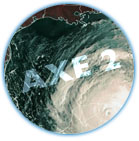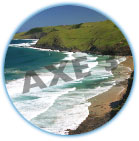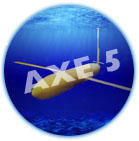Europole Mer present 5 research axes
Research Axis 1
Research Axis 1 adopts a novel approach to marine genomics by going further than describing and comparing genomes of marine organisms (i.e. comparative genomics) and embraces functional genomics, both in terms of biochemistry and biological genetic functions. Tools for environmental genomics are developed (metagenomics) and transfer of such approaches to the oceanographers community is emphasised. Research on biotechnologies and ‘blue chemistry’ creates links between biologists and structural chemists and drive a new research focus in France, marine chemical ecology, whilst bringing new molecular models to the chemists community.
Research Axis 2
In order to characterise the impact of climate change over marine ecosystems, physico-biogeochemico-biological coupled models need to be improved on different scales, from sub-meso to basin scales. Modelling this coupling is a real challenge around which teams from Research Axis 2 join forces. A new approach lies on a) studying key processes that control physical and biological response of continental margins and b) developing proxies to analyse past climate variability in marine environment from bio structures such as shells (from which daily temperature variations may be obtained for instance).
Research Axis 3
To maintain or even develop services delivered by nature to the human society is at the heart of sustainable management of coastal systems. The survival of these services depends on the ability of coastal populations and various users to adjust and coordinate their demand based on the renewal potential of resources. In this context Research Axis 3 aims at developing a real systemic approach of complex systems in response to perturbations at the species, ecosystem and human activity level. This approach, applied to coastal environment, with access to observation and experimentation, and as a key point of sustainable development, represents a major methodological step in dealing with environmental issues.
Research Axis 4
Deep sea environments are still largely unexplored although they are home to active geological processes that support diverse ecosystems. Information acquisition in these environments is largely dependent on technological advances for sampling and measurements (positioning, mapping and sea bottom image acquisition, geophysical survey, in situ measurements, geological, geochemical and biological sampling thanks to submersibles and ROVs). The current state of knowledge suggests a poorly studied field in terms of biodiversity and resources, be it for energetic, mineral or microbiological resources. Understanding such ecosystems implies a geobiological approach to appreciate links and interactions between the geosphere, hydrosphere and biosphere. Finally the comprehension of natural volcanic and seismic risks requires a detailed knowledge on processes function in their spatial and temporal dimension. Some topics also require repeated observations over time as well as long term continuous observations.
Research Axis 5
Research Axis 5 of the GIS Europôle Mer aims at developing and implementing smart underwater observatories to observe, measure and interact with the environment as required by the Research Axis 2 to 4 (2: Global change – ocean – marine ecosystems interactions ; 3: Observation and integrated management of the coastal zone ; 4: Deep sea exploration and understanding). Indeed Research Axis 2 to 4 deal with marine sciences and draw upon engineering sciences and technologies by expressing specific needs for observations such as long term and high frequency multi parameters measurements, over long distance with a low special sampling, including accessibility to a large scientific community






